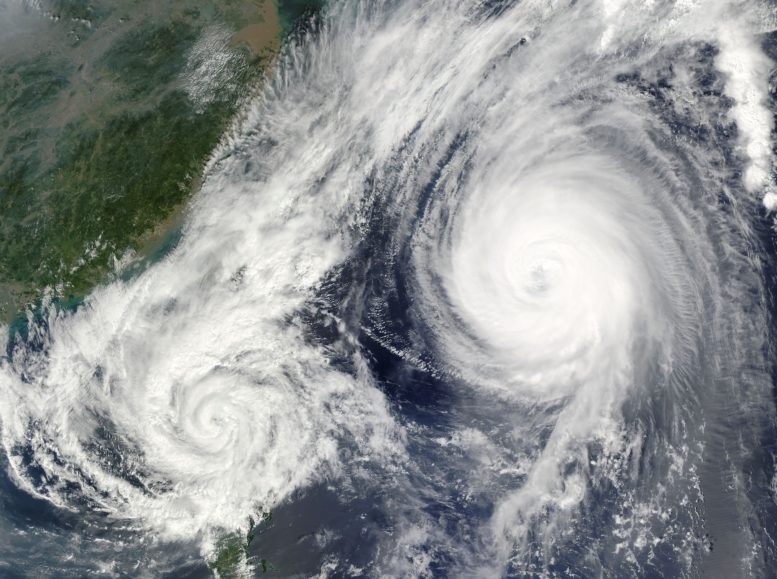The latest warning issued in early November 2019 by thousands of scientists from 153 countries about instituting measures that would effectively address Climate change speaks volumes in terms of human nature’s resistance to change. According to the scientists, Mother Earth “clearly and unequivocally faces a climate emergency.” She has registered faster than expected acceleration of global warming.
This alert came out despite the various initiatives since the 1970s starting with the First World Climate Conference (1979) followed by the Rio Summit (1992), Kyoto Protocol (1997), and the most recent Paris Agreement (2015). No less than the UN Secretary General Antonio Guterres acknowledges that the world’s biggest threat to the society and the future generations is Climate change. He declared, “We face a direct existential threat… we are at a defining moment.” His view closely resembles the long-standing view of former US Vice President Al Gore, a leading advocate of Climate change mitigation.
Scientific records show that the earth’s temperature started to rise when the Industrial Revolution commenced in the mid-1800s. This era required enormous energy supply of fossil fuels that emitted carbon dioxide (CO2), one of the greenhouse gases that pollutes the air and the oceans, and damage the ozone layer. About 90% of the CO2 emissions come from the fossil fuels such as coal, oil, and gas. Extracting these energy sources disturb and destroy the habitat of certain wildlife populations. When transported, these fuels pose risks of spillage and leakage.
The rise in human population has led to excessive food consumption, and the adoption of a wealthy lifestyle ushered the discovery of energy-consuming products. As human population increases the livestock population and food production centers increase. Similarly, affluent living via air, land, and sea travels increase energy demand and pollution of the environment. These conditions disrupt ecological balance and deplete the world’s resources including tree/forest cover. Consequently, the per capita CO2 emission increases leading to temperature rise. To some, prosperity is the main culprit in Climate change. But to Philippine President Duterte, prosperity should not be at the expense of the environment. Speaking in this year’s ASEAN Summit in Thailand, President Duterte said, “ASEAN should not sacrifice the environment and the region’s biodiversity, particularly in the maritime domain, in its quest for progress.”
The warning from the world scientists is based on the frequency and severity of environment-related events over specific periods like wildfires, cyclones and hurricanes, avalanches, heat and droughts, snow and hailstorms, flooding, pestilence and diseases, effects of increasing sea levels, and others. These are associated with the temperature rise caused by the 56% increase in CO2 emissions, or a total of 1.5 trillion tons, from 1751 to 2017. In 2017, the worldwide CO2 emission stood at 36.2 billion tons.
Over the years, there have been new inventions that generate power with minimal CO2 emissions compared with fossil fuels. The introduction of clean and renewable energy sources like water (hydroelectric and wave-activated generators), wind, geothermal, solar, and nuclear, helped arrest CO2 emissions but insufficient to supply the world’s electric power requirements. In the Philippines, First Gen Corporation put up wind and solar power projects in the Ilocos Region and geothermal power plants in Bicol, Leyte and Mindanao. Several independent power producers established small solar power projects catering to a limited number of households.
The search for cleaner technology continues. In China’s Greater Bay Area, an environmental industry alliance, employing 44,300 employees, emerged to conduct studies to assure energy sufficiency, find alternative energy sources, seek environmental solutions, produce green electronic devices, and manufacture water disposal and recycling equipment. Proper disposal and recycling of plastics would reduce pollution in the marine environment. Likewise, other nations are embarking on research and development in mitigating the effects of Climate change.
The consequences of unabated CO2 emission in the atmosphere are not limited to earth’s physical configuration but also the sources of food and energy supply. The bush and forest fires in eastern Australia, Indonesia and some parts of the United States, the hot climate spell in southern Africa, and the heavy smog in New Delhi, India affect ecological balance in those areas. Many other places experience varying environmental changes like the effects of sea level rise, and more destructive cyclones.
To the credit of these concerned world scientists, they recommended several measures to avert the catastrophic consequences of Climate change. They propose a shift from gross domestic product growth and pursuing affluence to sustaining the ecosystems and improving human wellbeing by prioritizing the basic needs and reducing inequality. Specifically, they suggest a sharper focus on 6 major areas: energy (efficient use and conservation practices), nature (restoring the ecosystems), food (eat plant-based food), economy (carbon-free economy and reduction of social inequality), short-lived pollutants (limit emissions of hydroflourocarbons, methane and other harmful gasses), and population (strengthen human resources while lowering the fertility rate). These recommendations would require drastic individual and government actions including more research and development to capture and find good uses of CO2 and to reduce the 80 million annual increase in human population.
This renewed and urgent call of the world scientists reflects a similar warning by Sir Winston Churchill on the occurrences of strong and disastrous Atlantic hurricanes in 1936, to wit: “The era of procrastination, of half measures, of soothing and baffling expedients, of delays, is coming to a close … In its place we are entering a period of consequences.”
